'Japanese garden on Hungarian rooftop': diversity and memory for sustainability futures
Sylvanus S.P. Doe05/15/2023 | Reflections
Introduction
I put on a pair of shining Swiss shoes aboard Emirates flight as a Commonwealth citizen from the post-British African city of Accra. Smiling in an unpolarised air, I first disembarked in Dubai and then finally landed on the European city of Budapest in Hungary. Immediately upon arrival, I headed straight to a US-accredited world-class university called the Central European University (CEU) to attend an exceptionally organized United Nations (UN) – sponsored professional training programme. Since then I kept wondering what a Japanese Garden was doing on the ‘Hungarian rooftop’. My experience with the Japanese Garden at the CEU provides me finest memory and prompts me to ask a pertinent question: ‘Is global sustainability possible?'
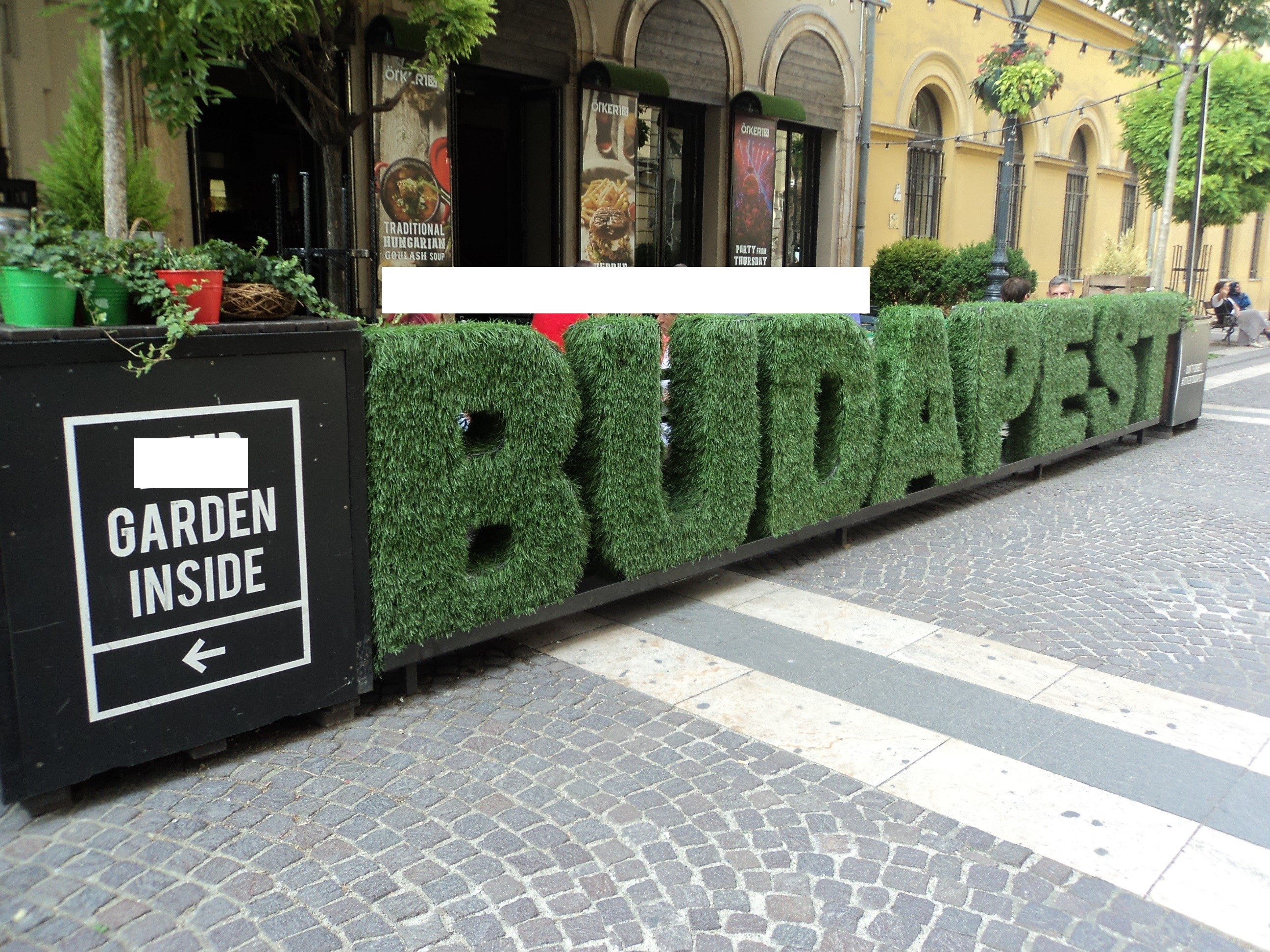
[Image credit: Author]
Coming from one of the 56 Commonwealth Nations (CNs), I perfectly understand the price of diversity, inclusion and solidarity in advancing a common humanity, which is also cherished by the UN. These values were demonstrated during my visit to the CEU. The trip offered me an excellent appreciation of why we must collectively pursue diversity as a powerful force in fostering sustainability futures globally. At the CEU, I met and learned from talented colleagues from the CNs (e.g. Sri Lanka, Pakistan, Nigeria, etc.) and non-CNs (e.g. Indonesia, Ukraine, Georgia, Costa Rica, etc.) who have all formed network capital I am so proud to associate with. The Asia-Africa connection was alive, so was Europe-Africa. Yet, what strongly inspires me to write this non-classical text-piece is an easy-to-read signpost on the stunning premises of the CEU.
Spotting the star Japanese Garden
On a brighter summer morning, I walked around after I enjoyed the rich Hungarian breakfast. As I stepped out of the CEU’s breakfast room on the Nador Street, I popped into a nicely written ‘wallpost’ - ‘Japanese Garden’. I turned my face but I could not smell or see phyto-fragrance of what I personally knew as a garden. I am in Hungary. But why is a Japanese Garden written here? I asked myself. Honestly, I was perplexed in a foreign wonderland. My curiosity persisted. Later, I asked a CEU staff and he directed me to an open space on the upper-floor.
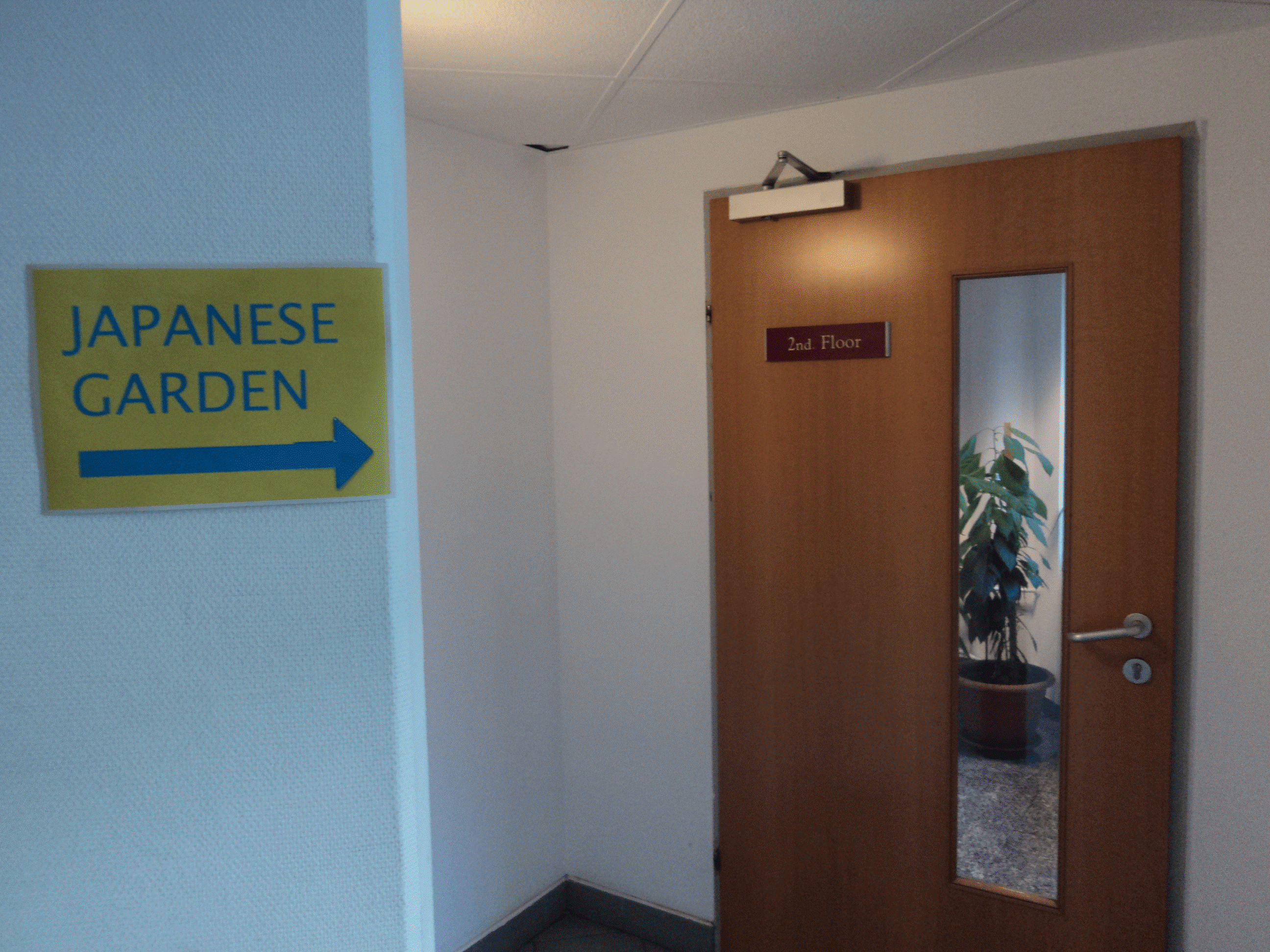
[Image credit: Author]
During one of our breakout sessions, I legitimately sneaked into the feel-safe space where I was overwhelmed to see the innovative ‘star’ garden that allowed organic growing of diverse species of trees, flowers, crops, shrubs, etc. – an appealing space for shared relaxation, fellowship, self-meditation, intergenerational learning and reunion. An important space for flourishing socio-environmental sciences, research and species enrichment opportunities! The soft solutions such as love, compassion, belongingness and trust can be tactically seeded at the garden. Here, the residents or visitors see, reflect and reconnect to a natural world, a clear-cut idea conceived by conventional wisdom as impossible. Indeed, the Hungarian style of Japanese Garden, raised perhaps 32m above sea level, is a job well-planned and done by appropriate STEM reasoning.
Gardening for human-sustainability futures
The above-ground microecology I witnessed at the Japanese Garden and futurist imaginations provoked me to agree with how sustainability has increasingly become a new human value irrespective of location, faith, culture, technology, sex, and law. Sustainability reshapes thought of politics, partnership, governance, leadership and environment. For all cities, including Budapest, Freetown, Lagos, or Cairo, increasing human density is intensifying demands to efficiently utilize ‘green’ spaces to create place-based happiness needed to feel secure, safe and sustainably adaptive. Here, human densification has nothing to do with culture. But, it is rather civilized city dwellers who embrace the novel idea of sustainability science and, as such, initiated an architecturally eco-designed facility to accommodate a Japanese Garden. In social sense of the Japanese Garden, and relating it to massive biodiversity loss in cities, including threats of polycentric urbanization to cacao trees in Global South, I learned the importance of STEM for improving and sustaining human habitats. I could not see wild fauna, adorable earthworms, or agile pollinators though in the Japanese Garden.
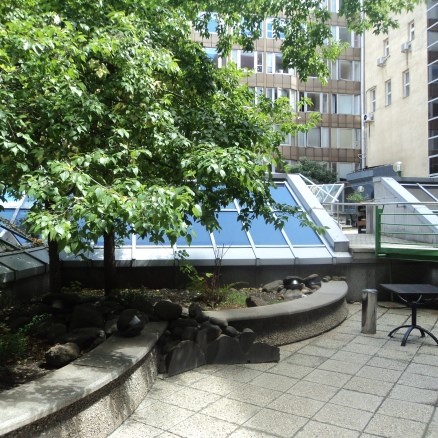
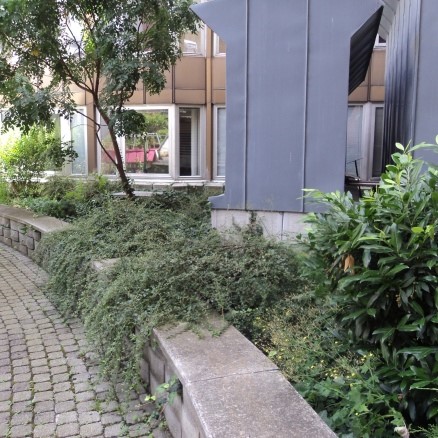
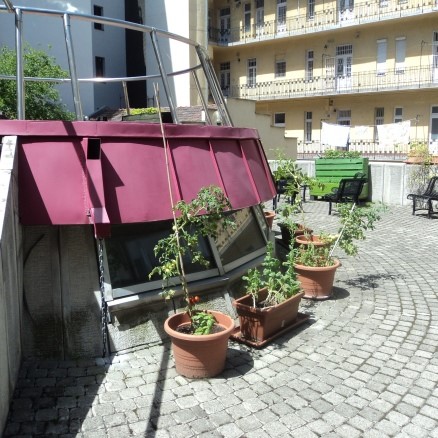
[Image credit: Author]
Despite that, how practicing sustainability as a human value can energize cordial interactions of cross-cultures and neighbourhoods to create human-sustainability futures through organotivar gardening should be our common goal. Mobilizing neighbours around Japanese Garden to exercise values such as system thinking, group intelligence and empathy could avert needless civilian killings like it is happening in the Ukraine – Russian war, because war as a functional element of sustainability science is never known morally and scientifically. One of the greatest things sustainability has done to date, which many are yet to appreciate, is that it reconciles thought discrepancies and the protracted tensions among academic disciplines.
Tackling polycrises through science
Carbon-triggered polycrises (e.g. heats, emissions, biome loss, migration, etc.) are now with us and pose dangerous threats to urban sustainability and Agenda 2030. A few proactive cities e.g. Stockholm and London are shifting to greener renewables to minimize the carbon crisis. In urbanized settlements, Japanese Garden can maximize spaces by accommodating removable solar energy plants and, at the same time, allowing for biodiversity savings. Beyond that, in all world cities, including Vancouver, Johannesburg, Canberra, Nairobi, Delhi or Harare, living is daily influenced by multi-cultural, digital and socio-technological ramifications, which gardening can support like in Havana city. Inside the Japanese Garden, STEM application revolutionizes human-nature relationships without making people feel alienated from their natural roots. The garden restores urban earth’s nature, environ-history and brings back pleasant memories to heal wicked past.
Conclusion
It is in this light that sustainability has not just sharply risen as a new science in Anthropocene but also a universal dialect that is supercharging people to communicate, govern and wisely reuse resources around them. Sustainability is meristematically penetrating every sphere and fabric of human lives in cities. Sustainability carries with it Brundtland principles that unify nations, businesses and motivate people to consciously pay critical attention to their surroundings. Admittedly, civic responses to sustainability is not entirely easy, especially in the Global South, where ideas around ‘sustainability’ are still emerging, and the practicalities of real-life contradict ‘sustainable development’ – poverty, hunger and red-soils. But there is hope. Re-designing and replicating the Japanese Garden alongside abundant nature-based innovations available elsewhere offer optimism for sustainability futures. Apparently, the Japanese Garden suggests that a beautiful, socially biodiverse and sustainable world is possible.
Sylvanus S.P. Doe is a Sustainability Specialist, and a Research Fellow of the Earth System Governance Project based at the Utrecht University, The Netherlands. Sylvan was a Commonwealth Shared Scholar in Practising Sustainable Development at the Royal Holloway, University of London (England). Apart from authoring a book on ‘Advancing sustainability in developing world’, he (co-)published in GeoJournal, PNAS, Environmental Sciences Proceedings, and UN Sustainable Development Journal (NRF). Sylvan periodically blogs on sustainability science, SD/SDGs, urbanism, human-environments, food ecosystems, climate impacts, and interdisciplinary issues at www.seedinglives.wordpress.com
Published: 05/15/2023
